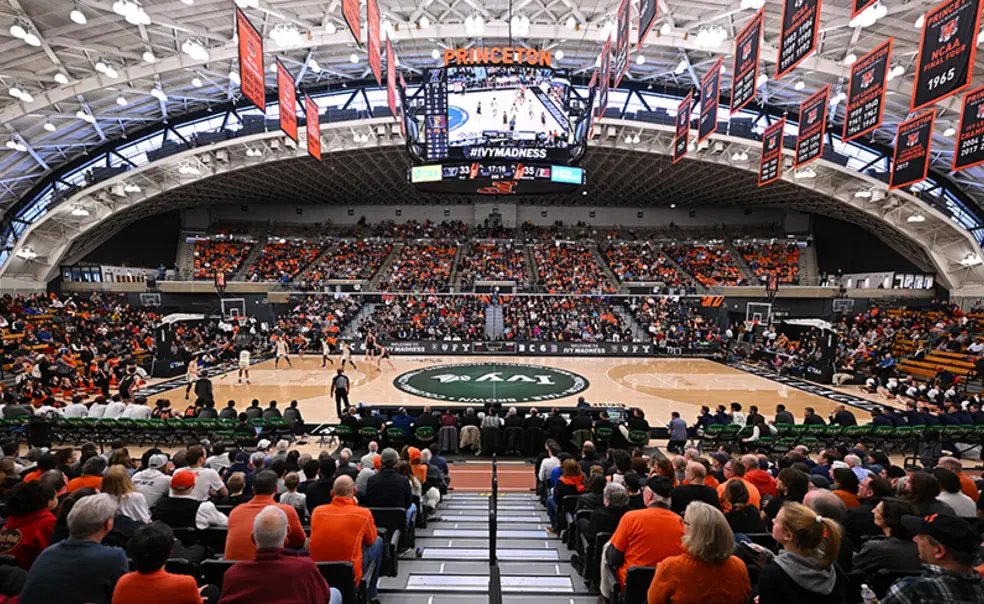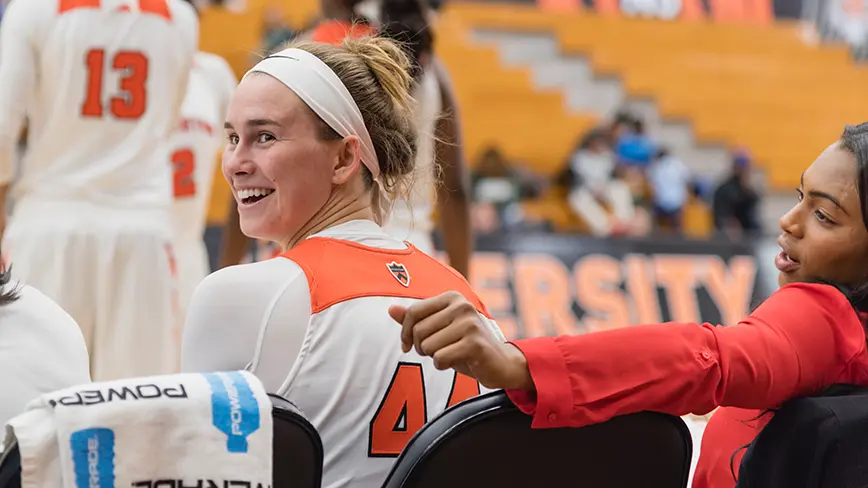The Whole Student: Can Princeton and the Ivy League Adopt More Care in Athletics?
Ivy League athletes can sometimes feel valued for winning, yet doubted or dismissed in daily campus life
Anxiety, depression, and “overwhelm” among college athletes have come down since the pandemic, but are still high relative to their peers. According to the NCAA’s most recent national survey, women, those identifying as LGBTQ+, and athletes of color report the highest rates of mental health struggles. Today’s college athletes face all the same pressures as their peers, plus additional factors that place them at increased risk for anxiety, depression, eating disorders, and burnout. As they say: “It’s a lot.”
When I was associate director of athlete services at Princeton from 2018-2023, I worried about all 1,000 athletes playing 38 sports — the ones who were doing great and the ones who seemed like they were doing great, but might not say if they were struggling. More than once, I reached out to an athlete who didn’t seem OK on their way into Jadwin, who was injured (the link between injury and mental health is strong for elite athletes), or whose parent expressed a vague concern. Almost without exception, these busy, tired, talented young people appreciated that someone cared about them. Not about how they played. It mattered that I cared about them as people.
Ivy League athletes can sometimes feel valued for winning, yet doubted or dismissed in daily campus life. Plus, with social media and national coverage, it can feel like, “everyone has an opinion about our athletic career and even about our character,” says Alexis Laudenslager ’23, former Ivy pitcher of the year on the softball team, who also played as a graduate transfer at Notre Dame.
What does full investment in the well-being of athletes engaged in the highest level of academics and athletics look like? In my work with college athletes all over the country through the nonprofit The Team, I have a window into athletes’ experiences on many campuses.
Michigan Athletics employs seven full-time, licensed counselors who focus on 27 teams and 900 athletes — in addition to the counselors available to the whole university. At Princeton, the multidisciplinary TigersPAW team available to 1,000 varsity athletes has grown in recent years. However, in typical Ivy League no-extra-benefits-for-athletes fashion, most of the sports psychologists and other professionals on TigersPAW also have responsibilities to the campus at-large, so getting access can be challenging for time-strapped athletes.
At the University of California, Berkeley, 900 athletes are supported by six dedicated academic advisers at an Athletic Study Center. Princeton’s McGraw Center holds some sessions targeted to meet athlete needs, but on a daily basis, athletes whose schedules are compressed by athletic demands are expected to operate just like everybody else even when it is physically impossible to be in two places at once.
Josh Coan ’24, a pre-med SPIA concentrator and member of the men’s volleyball team, explored the topic of mental health for Princeton athletes in his senior thesis. Compared to athletes nationally, Coan found that “Princeton athletes are more worried, more overwhelmed, mentally exhausted, and stressed.” He also found that Princeton athletes “agree at a lower rate that mental health is a priority to Princeton,” and felt “less comfortable talking about mental health with their coaches.” Coan calls on his alma mater to maximize the new Frist Health Center, improve coach-player relationships, distribute athlete-specific mental health resources, implement mindfulness programs, and to expand the sport psychology resources available to each athlete and team.
Many Princeton athletes feel positive about the support they receive. Kevin O’Toole ’22, former All-Ivy star of the men’s soccer team, now playing professionally with New York City FC, says, “Princeton does a great job of advertising the mental health resources available. It is evident in how destigmatized ‘meeting with a therapist’ has become,” He adds, “athletes at Princeton are applauded for seeking out mental health resources as a means of taking your on-field performance to the next level.” According to the NCAA, the majority of college athletes feel like O’Toole did — they know where to go to for support and feel comfortable doing so. My question is: What about the ones who don’t?
Obi Amaechi ’21, an All-Ivy, All-American discus thrower, competed in the 2024 Olympics for Nigeria after a year on the University of North Carolina track team. As a Tar Heel, compared to her time as Tiger, she says she “felt more supported as a complete being. The team and school environment (at UNC) made me feel more at ease navigating the stressors of being a student athlete. [I used] athlete tutoring centers, counseling sessions, and athletic trainer appointments at times that fit a student athlete’s schedule.” Could the Ivy League do more to ensure that the space between student and athlete is filled with empathy and care?
A comprehensive investment in athlete well-being in the Ivy League is not just about adding resources. It might be in small gestures that recognize the unique pressures that today’s Ivy athletes face. Abby Meyers ’22, former women’s basketball All-American and Ivy Player of the Year, who now plays professionally in Israel, offers a profoundly doable enhancement: “I believe all college athletes should be provided a journal — a guided one with daily exercises or just blank sheets of paper. A journal will always listen.”
Resources:
https://www.thehiddenopponent.org/
https://www.powerforward.coach/
https://www.ncaa.org/sports/2021/2/10/sport-science-institute-mental-health.aspx
https://www.athletesforhope.org/2019/05/mental-health-and-athletes/













No responses yet